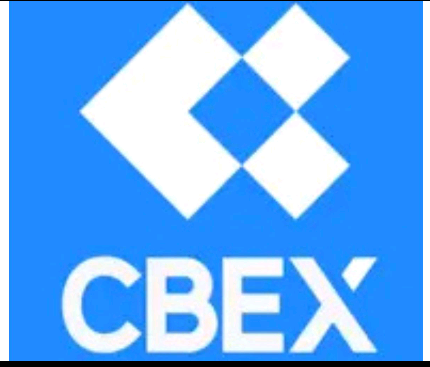On 14th April, 2025, the Securities and Exchange Commission (SEC) officially identified CBEX as an illegal unregistered platform in a statement, following the recent media reports. The Commission clarified that it did not grant registration to the crypto bridge exchange, CBEX, or its affiliates to operate in Nigeria.
CBEX claimed to be a global platform, linked to a government-owned business in China. However, Beijing Equity Exchange has denied any affiliations with the Ponzi scheme. The company, which promised investors a 100% return on investment within 30 days, emerged in Nigeria around July 2024, with a rented office in Ibadan, Oyo State.
The Ponzi Fraud claims to have affected over 300,000 Nigerians, with estimated losses ranging from ₦2.4 billion to over ₦1.3 trillion. Though this amount is reported to be a stretch, Techpoint Africa has estimated a total of $6.1 million, based on deposits tracked to wallets and smart contracts connected with CBEX. Some angry investors, in protest, began looting the CBEX office in Ibadan.
While CBEX is said to have operated as a centralized exchange, meaning it controls all transactions through its own servers and systems rather than using decentralized protocols like DeFi platforms, this recent scam has a negative impact on the broader Crypto Ecosystem, bringing distrust in the entire digital assets Market.
The Need for Regulation in Nigeria’s DeFi Space
The rapid growth of decentralized finance (DeFi) in Nigeria, driven by increased digital asset adoption, presents both opportunities and risks. The recent CBEX fraud has exposed critical vulnerabilities in the ecosystem and sparked calls for stronger government regulation in digital asset trading.
Despite operating outside the core DeFi infrastructure, CBEX’s association with cryptocurrency trading has shaken investor confidence in the broader digital asset space, including decentralized platforms.
While DeFi promises transparency, autonomy, and financial inclusion, the lack of a comprehensive regulatory framework in Nigeria has made it open to abuse, increasing the need for regulations in the Ecosystem.
These reasons includes;
1. Investor Protection:
Without proper insight, investors are left vulnerable to scams, rug pulls, and fraudulent schemes. The CBEX collapse demonstrated how easily bad actors can exploit the crypto hype, leading to significant financial losses for unsuspecting Nigerians.
2. Clarity and Legitimacy:
Regulations help distinguish between legitimate DeFi projects and fraudulent ones. Clear guidelines can support innovation while ensuring that participants operate within a defined legal structure, increasing public trust and participation.
3. Systemic Stability:
Even though DeFi platforms are decentralized, fraud in the crypto space can destabilize market confidence, affecting both centralized and decentralized ecosystems. That is why regulation oversight can help stabilize the space and making it more reliable
4. Compliance and Accountability:
Regulations encourage DeFi protocols to implement KYC (Know Your Customer), AML (Anti-Money Laundering), and audit mechanisms. This doesn’t necessarily require full centralization but ensures basic compliance that protects the ecosystem.
5. Global Alignment:
For Nigeria to remain competitive and safe for investors, it must adopt a forward-thinking regulatory approach that aligns with global best practices.
6. Legal Recourse:
Victims of scams like CBEX often have limited avenues for justice. Enabling legal accountability through clear laws, empowers the authorities to prosecute fraudsters and deter future misconduct.
The SEC’s warnings and the new Investment and Securities Act (2025), has introduced a 10-year jail term and a ₦40 million fine for Ponzi scheme operators.
The CBEX fraud serves as a wake-up call to the urgent need for regulatory intervention in Nigeria’s evolving DeFi space. While decentralized finance holds immense potential for financial inclusion and innovation, its success hinges on the establishment of regulatory rules to protect investors, ensure accountability, and promote legitimate platforms as a national priority.

